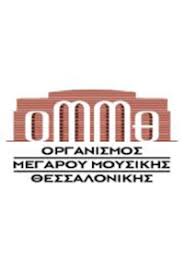Contact
ADDRESS
STAVROS NIARCHOS FOUNDATION
CULTURAL CENTER
364 Syggrou Avenue, Kallithea
TEL.
Box Office:
+30 213 0885700
Box Office email:
boxoffice@nationalopera.gr
Daily 09.00-21.00
info@nationalopera.gr
Register to our Newsletter

Artistic curator: Dimos Goudaroulis
Lighting designer, projections: Alexandros Seitaridis
Ticket prices: €12, €15
Students, children: €10
Festival
Starts at: 20.30 
Parnassos Literary Society (8 St George Karytsi Square, Athens)

Alternative Stage founding donor

Major Sponsor of the Greek National Opera

The highly successful Baroque Music Festival renews its appointment with the Athenian audience, presenting four unique concerts that focus on the highly original and imaginative music of the 17th century. Iconic works by Heinrich Ignaz Franz Biber and Arcangelo Corelli, instrumental music of rare beauty from Galileo’s Italy and eclectic “mad songs” come to life through the versatile programme of the festival, titled The Age of Experiments, that will be presented at the Greek National Opera Alternative Stage, at the SNFCC, on 24, 29, and 30 November and in the historic hall of the Parnassos Literary Society on 1 December 2024.
This year’s Baroque Music Festival, curated by the prolific and highly active artist Dimos Goudaroulis and in collaboration with the Thessaloniki Concert Hall, presents some of the most important and interesting aspects of the fertile musical period of the 17th century. The Festival’s programme traverses this century through four concerts, featuring leading European and Greek baroque musicians and highlighting early baroque music's open and restless spirit and experimental character.
The programme includes pieces ranging from the outward-looking and daring Italian instrumental music of Galileo’s time to the unique and enigmatic Mystery Sonatas by Austrian composer Heinrich Ignaz Franz Biber, and from the unconventional “mad songs” that flourished in England in the second half of the 17th century to Arcangelo Corelli’s iconic opus 5, which was published on 1 January 1700 and marked the transition from the music of the 17th century to that of the 18th.
As Dimos Goudaroulis notes: “The 17th-century music is marked by remarkable creativity, diversity, and a widespread spirit of modernity, exploration, and experimentation. In 17th-century Europe, science flourishes, and new inventions and discoveries blaze new trails in human knowledge, changing the world. In this zeitgeist, during the 17th century, the foundations of the subsequent Western classical music are laid, and its characteristics are born. It is the time that witnesses the emergence and development of various musical forms (opera, cantata, sonata, suite, concerto, symphony), families of instruments along with their technical advancement, as well as the concept of virtuosity, the Western tonal system, and harmony.”
The three first concerts of the Baroque Music Festival will be held at the GNO Alternative Stage at the SNFCC. The Festival will open on 24/11 with the first concert, Heinrich Ignaz Franz Biber—The Mystery Sonatas, featuring three leading musicians: Simos Papanas (baroque violin), Emanuele Forni (archlute), and Markellos Chryssicos (harpsichord).
The second concert titled Arcangelo Corelli, opus 5 – 1700, the end of an era scheduled for 29/11 will feature an ensemble of exceptional Greek artists consisting of Dimos Goudaroulis (fours-string violoncello piccolo), Andreas Linos (viola da gamba), Markellos Chryssicos (harpsichord), as well as the Italian Emanuele Forni, one of the most acclaimed and active lutists in Europe.
The third concert, All Sorts of Rare and Modern Inventions, on 30/11, will feature Fani Vovoni (baroque violin), Alexis Karaiskakis-Nastos (baroque violoncello), Panos Iliopoulos (harpsichord), and the renowned Bulgarian violinist Zefira Valova, director of the Sofia Baroque Arts Festival.
The Festival will conclude on 1/12 at Parnassos Literary Society with the concert Mad Songs – England, second half of the 17th century, based on a concept by Andreas Linos and Miguel Henry. The concert will feature the distinguished French soprano Chantal Santon Jeffery, accompanied by a unique and sophisticated French-Hellenic ensemble of exceptional musicians: Marion Le Moal (Renaissance and baroque recorders, baroque oboe, tenor dulcian), Mélanie Flahaut (Renaissance and baroque recorders, baroque bassoon, bass dulcian), Lucas Schneider, Andreas Linos (violas da gamba), Bertrand Cuiller (clavioroganum), Miguel Henry (Renaissance and Baroque plucked instruments, arrangements)
Mad Songs – England, second half of the 17th century
Sunday 1 December 2024 • Starts at: 20.30
Parnassos Literary Society (8 St George Karytsi Square, Athens)
Concept: Andreas Linos, Miguel Henry
Le Présences ensemble:
Chantal Santon Jeffery (soprano)
Marion Le Moal (Renaissance and baroque recorders, baroque oboe, tenor dulcian)
Mélanie Flahaut,(Renaissance and baroque recorders, baroque bassoon, bass dulcian)
Lucas Schneider, Andreas Linos (violas da gamba)
Bertrand Cuiller (clavioroganum)
Miguel Henry (English theorbo, baroque guitar and arrangements)
The second half of the 17th century witnessed the flourishing of a song genre that gained immense popularity in England, combining poetry, drama, and music in an original manner, known as “mad songs”. Composers such as Henry and Daniel Purcell, John Blow and John Eccles produced numerous songs with highly experimental character, complex forms and melodies, bold harmonies and dramatic shifts of emotions inspired by the theme of madness.
The stunning French soprano Chantal Santon Jeffery, known for her performances in Europe’s most prestigious halls, opera houses, and festivals, accompanied by a distinctive and sophisticated French-Hellenic ensemble of exceptional musicians, will present exquisite samples of "mad songs”, typically written for voice and basso continuo. These pieces will be showcased in original transcriptions that emphasize the unique and sophisticated timbres of the rare baroque ensemble instruments.
The production “Baroque Music Festival” is part of the GNO Alternative Stage’s unit of programming titled “MUSIC THEATRE DAYS”, which falls under the ACT “FESTIVAL EVENTS OF THE GNO ALTERNATIVE STAGE 2024-2025” » (MIS 6002467) with code 2024ΕΠ08570049 (Priority: “Fostering regional social cohesion through the enhancement of mechanisms and infrastructure to support employment, education, health care and socioeconomic inclusion” of the programme “Attica 2021-2027) and is co-financed by the European Regional Development Fund (ERDF) and National Resources.

STAVROS NIARCHOS FOUNDATION
CULTURAL CENTER
364 Syggrou Avenue, Kallithea
Box Office:
+30 213 0885700
Box Office email:
boxoffice@nationalopera.gr
Daily 09.00-21.00
info@nationalopera.gr